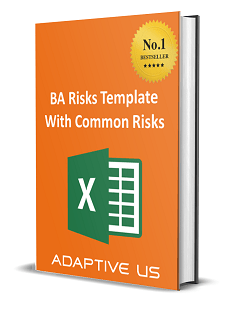The Role of Business Analysts in Project Risk Management
Projects can be like a big puzzle with many pieces. Sometimes, things can go wrong, and pieces might not fit. In the realm of project success, project risk management takes center stage. Project Risk Management is the process of identifying, assessing, and controlling potential risks that could impact the success of a project. This article will shed some light on the business analysts' role in project risk management and their invaluable contributions to the overall process.
Importance of Business Analysts in Project Risk Management
Business analysts are essential when it comes to managing risks in a project. Their main task is identifying and analyzing potential risks affecting the project's success. They identify and analyze different types of risks, such as technical, operational, and financial risks, to understand their likelihood and impact on project objectives.
A business analyst bridges the gap between technical teams and stakeholders by facilitating a comprehensive understanding of risks and their impact on project objectives.
By conducting thorough risk assessments, they assist project teams in creating effective strategies to mitigate these risks.
Moreover, they offer valuable insights and recommendations on how to minimize the chances and consequences of the identified risks.
Business analysts also play a role in continuously monitoring and evaluating project risks, ensuring that any new or emerging risks are promptly recognized and dealt with.
With their expertise in risk management practices and techniques, business analysts greatly contribute to the overall success of projects.
Responsibilities of Business Analysts in Project Risk Management
A business analyst’s role and responsibilities involve analyzing the project's objectives, scope, and constraints to identify risks and develop strategies to minimize them. Business analysts collaborate and work closely with stakeholders to understand business requirements, conduct risk analysis, gather and analyze data, facilitate risk workshops, and ensure that risk management plans are incorporated into the project's overall management framework.
Throughout the project lifecycle, they monitor and track identified risks and provide regular updates to stakeholders.
Their involvement ensures a proactive approach to risk management, which ultimately enhances project success by aligning business needs with strategic risk mitigation strategies.
In summary, business analysts are responsible for identifying, analyzing, mitigating, and communicating risks in project risk management.
Techniques and Tools Utilized by Business Analysts in Project Risk Management
By employing several techniques and tools, business analysts play a vital role in project risk management.
Business analysts conduct comprehensive risk assessments to uncover any potential issues and create strategies to mitigate them.
To gain a deeper understanding of the project, they may employ a SWOT analysis, which examines its strengths, weaknesses, opportunities, and threats.
Furthermore, they utilize root cause analysis to identify the underlying causes of risks and take corrective actions.
Throughout the project lifecycle, business analysts rely on project and risk management software and tools like Jira, RiskWatch, Spreadsheets, Confluence, etc., to track and monitor risks.
Business analyst expertise and utilization of these techniques and tools are essential in ensuring effective risk management within projects.
Best Practices for Business Analysts in Project Risk Management
To guarantee successful project risk management, business analysts must adhere to the best practices. These practices include actively identifying and evaluating risks, as well as carefully documenting and communicating their findings. Moreover, business analysts should work closely with stakeholders to create strategies for minimizing risks and oversee their execution. Furthermore, they should consistently review and revise risk management plans throughout the project's lifespan. By following these best practices, business analysts can play a vital role in reducing risks and contributing to the project's overall triumph.
To conclude, projects are like big adventures. Just like having a map or a guide makes an adventure easier, having business analysts on a project team ensures the journey is smooth and successful.
You May Also Like
These Related Stories

5 Must-Read Books to Develop Your Risk Analysis Skills

What is an Analyst? Roles, JD, Salary, Training, and Certifications



No Comments Yet
Let us know what you think